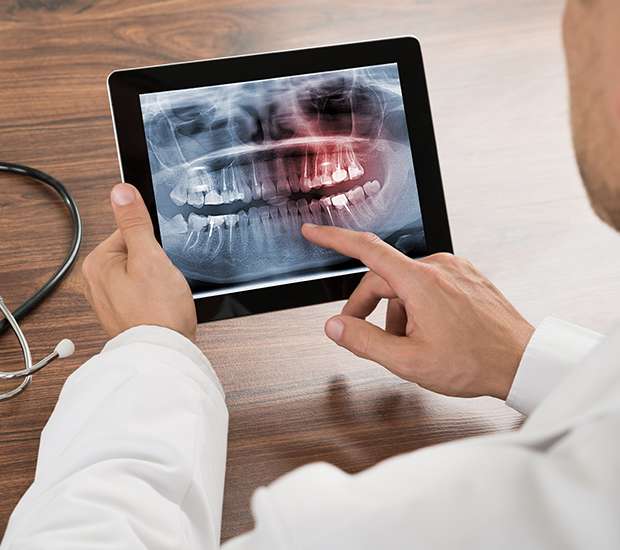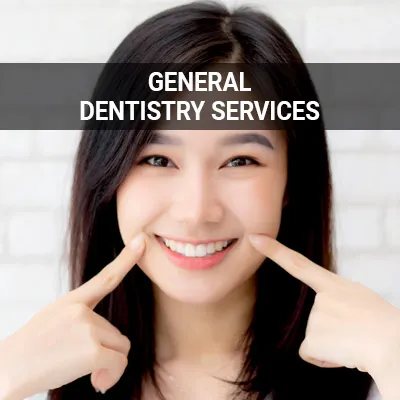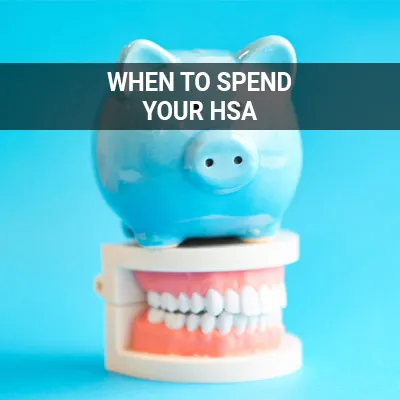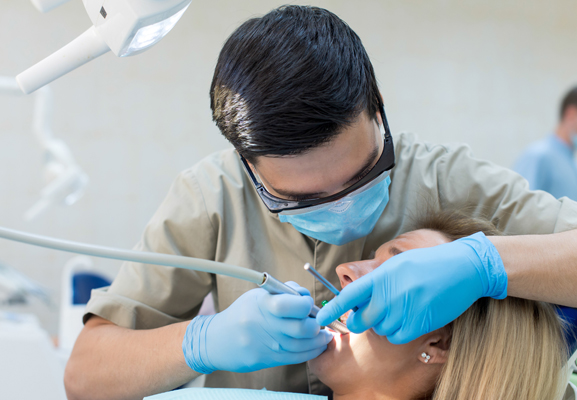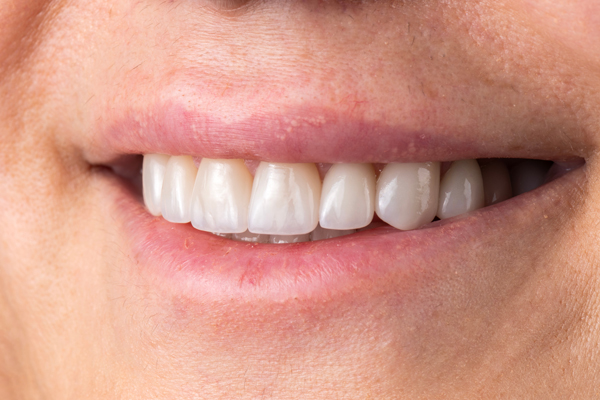Helpful Dental Information Charlotte, NC
When searching for a new dentist, many patients are unsure of where to begin. Online resources can include puzzling dental terminology. If you are feeling confused or overwhelmed, help is available. The right dental information can make your search easier.
At Randolph Dental Care in Charlotte and the surrounding area, we provide in-depth dental information. Our team offers guidance to new and existing patients. During the treatment process, we help you understand your options for care. Call us today at (704) 366-3622 to schedule an appointment or learn more about our services.
Finding a Dentist Within a Network
Choosing a new dentist can be challenging, but the right resources can make this task easier. Patients should begin their search by contacting their dental insurance provider. Insurance providers have search tools to help patients determine whether a dentist is within their network. Using this tool, patients can filter their search and locate providers with different specialties.
If you need a specific type of dental care, this tool can help you narrow down your options. They can also search for local network dentists by city, ZIP code, or name. Keep in mind that information on the Internet may not be up-to-date. Providers might have stopped working with certain insurance companies or changed their policies. Before scheduling an appointment, ask the office team whether they accept a specific dental insurance plan.
“Patients should begin their search by contacting their dental insurance provider.”
Choosing Between Different Types of Providers
Patients who need specialized services may have to research even further. First, patients must understand what type of care they need. General dentists are a good place to begin.
General providers perform routine exams and cleanings. They also treat many common dental concerns, including:
- Missing teeth
- Cracked or broken teeth
- Cavities
- Gum disease
If the general dentist cannot treat the patient's problem, then they may provide a referral. The patient might need to visit one or more of the following providers:
- Endodontists: specialize in problems with tooth nerves
- Oral surgeons: perform specialized surgery on the mouth and jaw
- Orthodontists: specialize in tooth and jaw misalignments
- Pediatric dentists: specialize in caring for children and adolescents
- Periodontics: specialize in treating gum disease and tissue damage
- Prosthodontist: repair broken teeth and jawbones
General dentists can recommend the most appropriate provider, provide follow-up care, and monitor patients for treatment complications.
“If the general dentist cannot treat the patient’s problem, they may provide a referral.”
Understanding Your Dental Care Plan
Providers may offer their patients brochures, flyers, or other supplemental materials. These resources help patients understand their diagnosis and treatment options. Online resources can help, too. The ADA offers a glossary of common dental terms. They also sponsor the MouthHealthy website, which has detailed information and oral health videos.
Through these sites, patients can research common dental conditions and learn more about at-home care. It is essential to use professional, verified websites for info on oral health. However, it is even more beneficial to work with a licensed dental professional who can ensure patients receive the customized treatment they need.
“Providers may offer their patients brochures, flyers or other supplemental materials.”
Check out what others are saying about our dental services on Yelp: Helpful Dental Information in Charlotte, NC
When to Seek Out a Dentist
Children and adults of all ages need ongoing dental care. Most providers recommend dental checkups twice a year, but some patients may need additional visits. Dentists can determine a customized care plan for each patient.
If a dental problem arises between visits, do not wait. Delaying care may allow the problem to worsen. Patients should contact their provider to schedule an urgent appointment. Swift treatment can save time, trouble and discomfort.
Contact the dentist right away if you experience:
- A cracked or broken tooth
- A knocked-out tooth
- A loosened tooth
- Gum bleeding
- Mouth or jaw pain
- Mouth sores or ulcers
- Shifting teeth
“Most providers recommend dental checkups twice a year, but some patients may need additional visits.”
Questions Answered on This Page
Q. How can I find a new dentist?
Q. What kind of dental providers are available?
Q. Where can I learn more about my dental diagnosis and treatment?
Q. How often should I see the dentist?
Q. What should I ask my dentist during an office visit?
People Also Ask
Q. What should a home oral care routine include?
Q. Who should I ask about finding the right dentist?
Q. How can someone find out what procedures their dental insurance covers?
Q. What kind of pain can be addressed by a root canal treatment?
What to Discuss During a Dental Visit
After arriving at the office, patients should notify the office team about any changes in personal health. New medications should be discussed, too. Patients should let the team know about any changes in their teeth or gums. The team can make sure the dentist is aware of any potential trouble spots.
During your routine checkups, the dental provider cleans and examines the patient's teeth. Afterward, patients have a chance to discuss any questions or concerns. This is a good time for patients to learn more about at-home care.
Many patients ask questions such as:
- What type of toothbrush/toothpaste should I use?
- Do I need orthodontic care?
- Should my children receive dental sealants? When?
- How often should my family receive checkups?
- What are my options for tooth whitening?
- I’m planning a pregnancy. What changes should I make to my dental routine?
- What should I do if I have an after-hours dental emergency?
- What precautions should I take while playing sports?
Patients can discuss their lifestyle, treatment preferences, and any dental concerns. Providers can then offer individualized guidance based on each patient's unique needs.
“After arriving at the office, patients should notify the office team about any health changes.”
Frequently Asked Questions
Q. How often do I need to see a dentist?
A. Most patients need a dental exam and cleaning every six months. Regular dentist visits help prevent plaque buildup. They also allow your dentist to treat dental problems in their early stages. Putting off your dental checkups can lead to big problems later on. Checkups are also a good time to receive important dental information.
Q. I have not been to a dentist in a long time. Where should I begin?
A. If it has been a while since your last checkup, do not delay. Schedule a checkup as soon as possible. Let the dental team know when you had your last exam. If it has been more than a year, the team may need to perform a more in-depth cleaning. They might also need to take more X-rays or perform other screenings.
Sometimes, patients are embarrassed to admit that they have not seen a dentist in a long time, but dental providers are always glad to help patients get back on track. Be honest with your provider, and let your provider offer dental information.
Q. How should I take care of my teeth at home?
A. Brushing and flossing twice a day helps prevent plaque buildup. Use a soft-bristled brush and brush for at least two minutes. Afterward, floss your teeth and rinse your mouth. Your provider can offer tips on brushing and flossing techniques.
Avoid sticky, sugary foods. They can trap bacteria and debris against your gum line. You may also need to use a mouth guard to protect your teeth while playing sports. Our team can provide more dental information about mouth guards.
Q. What should I do if I have a dental emergency?
A. Dental emergencies can include:
- A cracked, chipped or broken tooth
- A loosened or knocked-out tooth
- A missing filling
- Oral pain or bleeding
Contact your provider right away if you experience a dental emergency. If you cannot reach your provider, head to an emergency-care clinic or the hospital. Do not delay seeking care. Dental emergencies can worsen over time, so prompt dental care is essential.
Q. I am not happy with the appearance of my teeth. What are my options?
A. Dentists can offer a wide range of cosmetic treatments, including crowns, implants, bridges, dentures, teeth straightening, teeth whitening, and more. These procedures can fill in gaps, replace missing teeth and brighten your smile. However, some dental practices may not offer these services. Ask your dentist what cosmetic services and other dental help they provide.
Dental Terminology
Call Us Today
The right information and research can make finding the right dentist and treatment easier. Our team at Randolph Dental Care can provide you with resources and support to guide you to the right treatment option. Call us at (704) 366-3622 to learn more about our services or schedule an appointment.
Helpful Related Links
- American Dental Association (ADA). Glossary of Dental Clinical Terms. 2024
- American Academy of Cosmetic Dentistry® (AACD). Home Page. 2024
- WebMD. WebMD's Oral Care Guide. 2024
About our business and website security
- Randolph Dental Care was established in 2016.
- We accept the following payment methods: American Express, Cash, Check, Discover, MasterCard, and Visa
- We serve patients from the following counties: Mecklenburg County
- We serve patients from the following cities: Charlotte, Matthews, Huntersville, Fort Mill, and Pineville Mint Hill
- Norton Safe Web. View Details
- Trend Micro Site Safety Center. View Details
Back to top of Helpful Dental Information
